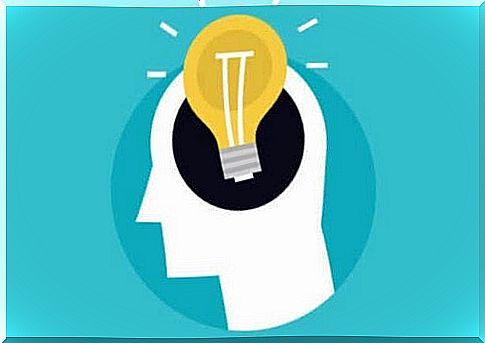What Exactly Makes A Person Smart?

Intelligence is a common field of study in psychology. In fact, its history and development form the basis of a large part of the subject’s methodology. Perhaps the biggest headache, when it comes to the study of intelligence, lies in how to measure it. In other words, it is almost impossible to determine whether a person is smart or not if you do not know what it really means to be smart to begin with.
There are many definitions of intelligence. In fact, a quick search on the web gives you many results on it, some of which are quite different and some a little scary.
For some it is smart to solve problems while for others it is about the art of creating them. Then there are those for whom it represents the art of making decisions. In any case, an “art” consisting only of skills is somehow a reminder that even intelligence without productivity has little value and does not make sense, at least for others.
Keep reading to discover some answers about what makes a person smart.

Was Einstein smarter than Mozart?
This question somehow puts music lovers in confrontation with physics lovers. Why? Because at least at first thought it can give the impression that there is less intelligence in creative individuals whose work is based on either pleasure or tragedy. But as we understand the concept of genius, we also understand that there is usually a certain inherent pain or struggle in people who are geniuses.
Similarly, many argue that one should approach the concept of intelligence from a social perspective. That is, from your ability to relate and the benefits you can create for yourself, for the immediate immediate environment, or for society at large.
For example, if you were to look at primates, you would discover what a complex social environment they live in. They can often be deceived, but also exhibit behaviors that can be described as altruism. There is even an open debate about whether their senses give them a perception of themselves as unique individuals separated from the others in the group (Gallup, 1982; Hauser, MacNeilage & Ware, 1996).
The intellectual capacity of the intelligent person
Intelligence is directly linked to intellectual capacity. It is about being able to learn, remember and use new information to solve problems and adapt to new situations. Some prominent names, such as Charles Spearman and Francis Galton, are included at the beginning of the study we mentioned above.
Binet stands out, however, because the context in which he developed his work was pedagogical. His interest in studying intelligence was also about improving the education system. He wanted to know if there was a method to intervene in children with learning difficulties.
Together with his colleague, Theodore Simon, Binet designed a test to try to measure children’s intellectual ability. To do this, they created individual test articles for the children to answer according to their age.
For example:
- A three-year-old should be able to point to his mouth and eyes.
- A nine-year-old must be able to name the months of the year in order.
- Finally, a twelve-year-old should be able to name sixty words in three minutes.
This assessment was the first IQ test:

What makes a person smart?
Socrates went down in history for many reasons, but perhaps the most important was his design of a method of producing knowledge: Maieutics. Those who use it must be skilled at asking questions.
By pulling the same thread, science moves forward when people have the ability to ask important questions before they get relevant answers. Thus, perhaps the most important sign of intelligence is to be able to create questions.
But in addition, a person who is skilled at solving logical problems is usually considered smart. Thus, mathematics has been the preferred field for testing this due to its abstraction of cultural variables. Perhaps the most inspiring and inclusive of modern theory is Gardner.
Gardner’s theory is based on the idea that humans process information through various independent or partially independent “channels”. He has identified eight common types of intelligence. They include:
- Logical-mathematical
- Visual-spatial
- Musical-rhythmic
- Verbal-linguistic
- Physical-kinesthetic
- Interpersonal
- Existential
- Naturalistic
This theory is very interesting. In fact, it has led to a following that has undertaken to adapt the way in which information is presented, individually, in order to improve learning.
Final thoughts on what makes a person smart
Finally, positive psychology has expanded the answer to what makes a person intelligent by highlighting the value of emotional intelligence. This school of thought reinforces the idea that emotion and associated intuition go hand in hand with intelligence. In addition, it claims that a smart person can manage their emotions properly, listen to an associated message and choose the best way to channel their energy.









